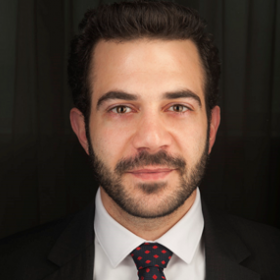
The Good News from Mumbai
If there’s one piece of good news that has emerged from the latest terrorist attack in Mumbai, it is that both India and Pakistan appear determined not to allow the incident to derail the ongoing peace talks between them, with the next round scheduled for later this month. Instead of mutual recriminations, the attack was followed by a clear-cut effort to limit the damage to relations between the nuclear-armed rivals on the sub-continent.
On the evening of July 13th, three near-simultaneous blasts shook India’s commercial capital: one explosion in the Zaveri Bazaar, another in the Dadar district in the city centre and a third in the Opera House business district. Twenty-one people were killed and 113 injured.
But in stark contrast to the aftermath of the Mumbai attacks of 2008 that brought peace talks to a screeching halt, both New Delhi and Islamabad worked hard to avoid that outcome this time. India’s Interior Minister P. Chidambaram said India will not blame anyone without any concrete proof, indicating that he was casting a wide net for suspects. “All groups hostile to India are on the radar,” he declared. Similarly, Pakistani leaders condemned the attacks. Foreign Minister Yousaf Raza Gilani vowed that his country and India would “not get deterred by the terrorists’ designs to derail the dialogue once again.”
The recent bomb blasts are the deadliest in Mumbai since November 2008 when ten gunmen launched a three-day coordinated raid that claimed the lives of 166 people and injured more than 700. The gunmen were affiliated with Lashkar-e-Taiba (LeT), one of the largest terrorist organizations in South Asia with alleged links to Pakistan’s Directorate for Inter-Services Intelligence (ISI). LeT began operating against the Soviets in Afghanistan and soon directed its attention towards Indian-controlled Kashmir.
So far, no group has claimed responsibility for the latest Mumbai attack, but current speculation has focused on another jihadist group called the Indian Mujahideen. This is a largely home-grown movement, although it has ties across the Pakistani border. A product of the Students Islamic Movement of India (SIMI), it was formed in 1977. In 1986, SIMI called for the “liberation” of India's Muslims and, at some point in the 1990s, evolved into a militant organization with ties to the LeT. SIMI first claimed responsibility for serial bombings in multiple north Indian cities in 2007, and came to prominence after attacks in Ahmadabad in 2008. It has also claimed responsibility for numerous other attacks, including those in Jaipur, Bangalore, and Delhi.
There are clear links between the Indian Mujahideen and Lashkar-e-Taiba. LeT provides logistical support and ideological messages to regional jihadist movements--including the Indian Mujahideen. Georgetown University Professor Christine Fair notes that “SIMI/IM appears to be an important vector of LeT infiltration and cultivation of Indian leaders and cadres.”
According to Pakistani and Indian media, the timing of the latest Mumbai attack was anything but coincidental. Several reports focused on the fact that this attack, just like the one in 2008, was aimed at sabotaging peace talks between the two neighbors. But Indian and Pakistani officials insisted that the foreign ministers of their countries would meet as scheduled later this month.
Despite the reports that the Indian Mujahideen, with its known ties to the LeT, may be behind the attacks, this has not changed the determination of both sides to continue the dialogue. That hardly means that India and Pakistan are putting all their old enmities and suspicions aside. But it does signal a new resolve to talk rather than play the blame game--at least for now. This is a modest but important step forward.

